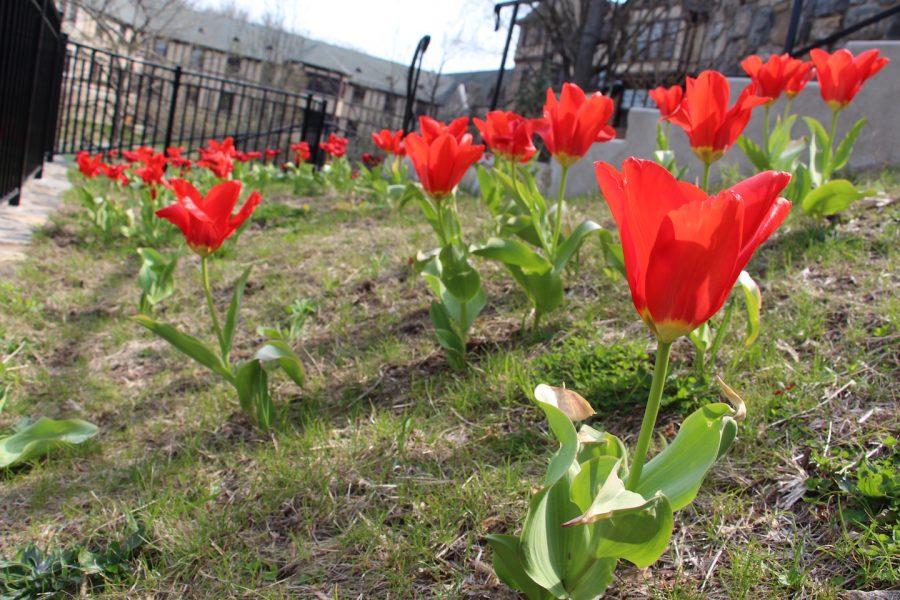HEAL Instills Awareness
Credit: Lucy Barse
Red tulips planted by the Hackley community in the fall bloomed this April.
May 1, 2016
In honor of Earth Day, Hackley’s HEAL club hosted sociologist Jennifer Greene to speak to the community about the immoral aspects of Carnism and its impact on the environment. Later in the day, she also attended Mr. Bileca’s Moral Philosophy class to discuss with the students in a smaller setting about the dilemma of Carnism.
In the spring, HEAL is also planning numerous events to keep the community engaged with its program and to stay mindful of Hackley’s environmental impact every year, such as a sports equipment drive and Crayola marker drive. Senior Karina Franke, the leader of HEAL, is optimistic about their events planned for the end of the year and their progression as a group. “I’m really excited about how HEAL looks for the end of the year and for next year, as some of the underclassmen will take on leadership roles in planning the upcoming events,” she said.
Ways to Contribute to the Environment:
- A good way to be conscious about the environment on Earth Day is to pick up litter and be extra attentive to trash on the ground. Every day it can be easy to simply walk past trash on the ground and not give it a second thought, but for this Earth Day try to pay attention to the garbage around you and pick it up!
- Try to use less water and conserve as much as possible. Turning off the sink while brushing your teeth is a great way to save water, as is taking a shorter shower. A four-minute shower uses up approximately 20 to 40 gallons of water. To save water when brushing your teeth, do the same when you are brushing and rinsing.
- Use a metal or reusable water bottle as opposed to plastic store-bought water bottles. Not only is doing this environmentally conservative, but it is also financially conservative. Purchasing a $10 Nalgene water bottle once conserves thousands of dollars annually that would be spent otherwise on disposable plastic water bottles.
- Earth Day is a great opportunity to start a compost in your backyard by putting a bin where your trash is stored. Put leaves, weeds, and garden waste into this bin and fill it with your organic waste. Try to avoid putting bones, toxic materials, or animal waste into your compost! After you’ve collected a bin full of compost, wait a month or two and you’ll have rich compost on the bottom that is ready for use.

